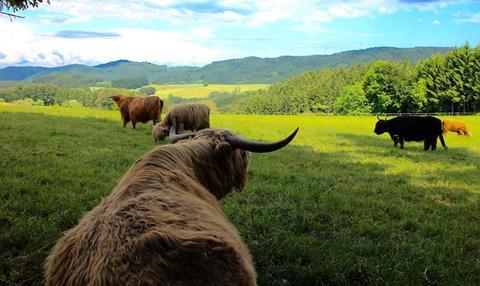The Nuffield Farming Scholarships Trust has announced the appointment of their largest cohort ever with 23 new scholars for 2024, four of whom are involved in the beef and sheep sectors.

Over the course of their scholarships, the scholars will travel internationally to gain an in-depth understanding of their study topic from global experts.
“Following a substantial number of exceptional applicants this year, we are delighted to announce our biggest ever cohort of Nuffield Farming Scholars,” said Mike Vacher, director of the Nuffield Farming Scholarship Trust. “Our 2024 scholars have already displayed a clear passion for their chosen topics, and I have no doubt that they have the potential to become leaders who shape the future of agriculture.
“We are looking forward to introducing our 2024 cohort to the Nuffield Farming family at this year’s ‘Super Conference’ in Exeter. This will be the pinnacle of what is already set to be a fantastic event, with over 30 Scholars presenting their study findings.”
Industry scholars show enthusiasm
'Enhanced Meat Eating Quality from 100% Pasture and Forage Systems'
Jock Gibson is a butcher and beef and sheep farmer based in Dallas, Scotland, with 250 head of cattle on a Pasture for Life assured beef system. For his study, “Enhanced Meat Eating Quality from 100% Pasture and Forage Systems”, he will explore grass and forage systems and understand how the animals’ diet and nutrition affect eating quality.
Gibson also wants to learn how red meat consumption and personal well-being are linked and aims to pull all of his learnings together to establish how to produce excellent meat eating quality from 100% grass and forage diets.
'Upland Sheep Farming, Finding the Balance: Production, Conservation and Climate Change'
Dan Jones is a tenant farmer of the National Trust at Parc Farm on The Great Orme, a unique limestone headland that is home to rare flora and fauna. It is an SSSI, Important Plant Area and Special Area of Conservation and visited by over 600,000 people a year.
During his study he would like to focus on the potential to maximise the food production and profitability of the upland sheep farm, while enhancing nature conservation and considering climate change. There are a vast range of upland sheep farming systems across the world that he would like to visit, experience and learn from, including in the UK, France, Switzerland, USA, Argentina and Chile.
'The Disconnection Between Eating Quality in the UK Beef Industry - From Farm to Fork'
Gwion Parry works as an ultrasound scanner and is in the process of taking over his family’s Gwynedd-based farm, with a goal to concentrate on scanning for beef marketing purposes and develop his own eating quality assured beef brand. The aim of the study is to identify why the UK do not value beef or beef animals for their eating quality as is done in USA, Australia and Japan.
Believing these nations are at the forefront of beef marketing, he aims to learn more about carcase grading technology, how farmers are paid, the history of their grading systems and future plans to ensure the quality is sustained. Parry hopes to travel to the USA, Japan, Australia, and South America.
'Minerals for Ruminants - Are We Getting it Right?'
Dr Annie Williams is a business development manager at the Centre for Innovation Excellence in Livestock (CIEL), with a keen interest in minerals and the role they play in ruminant nutrition. During her Scholarship, she hopes to explore the many complexities around mineral nutrition and understand evidence-based practices to provide the best advice for farmers.
She will also seek to learn about the global differences in supplementation, on-farm advice and diagnostics within the context of sustainability, nutrient utilisation and regenerative agriculture. Williams hopes to spend time in New Zealand, the USA, Ireland, and the Netherlands.
The other 19 scholars will also be on their own paths of study, with some looking at organic farming, calves and even pasture based dairy goat systems.
This story was originally published on a previous version of the Meat Management website and so there may be some missing images and formatting issues.















